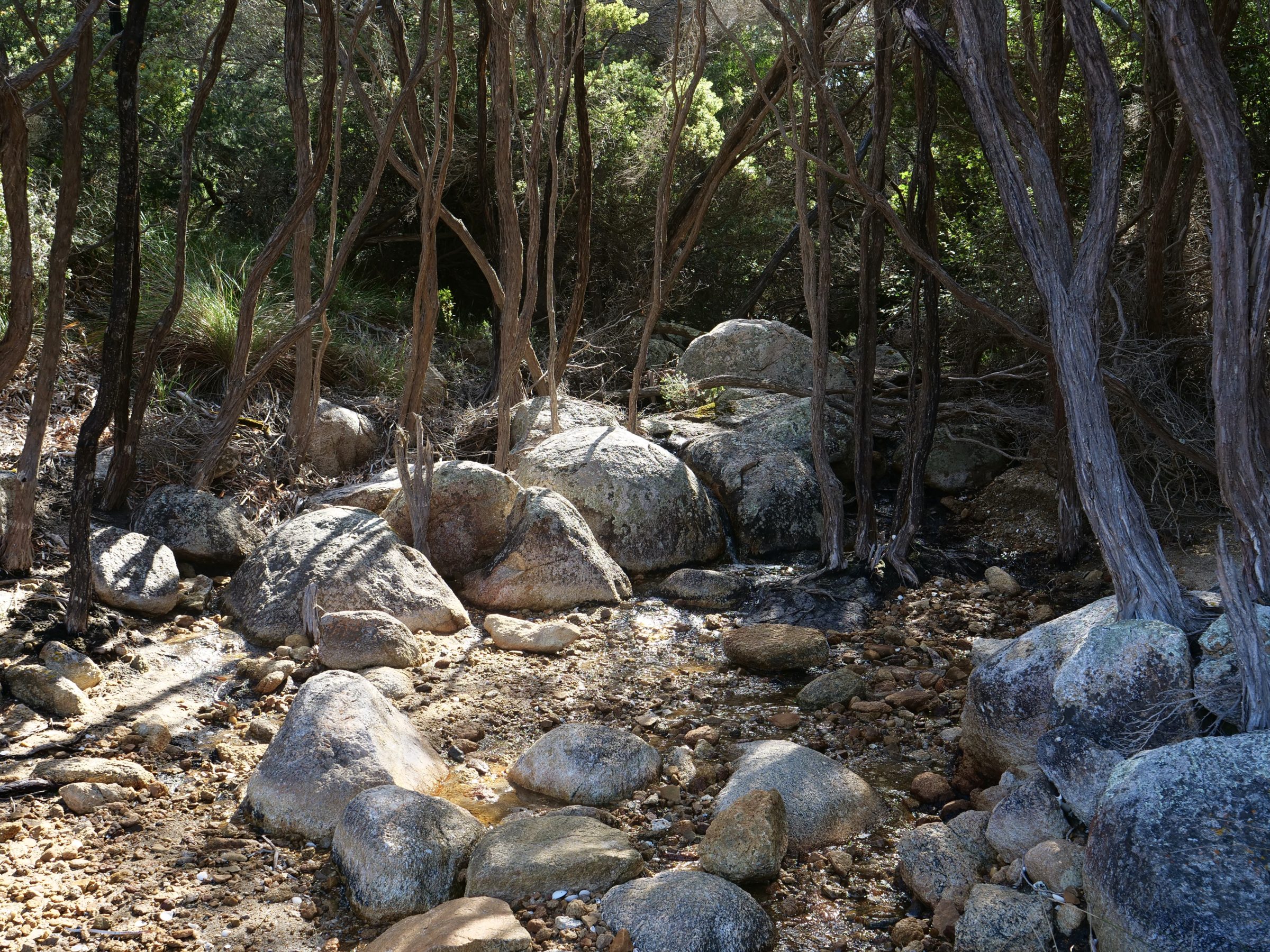Solid granite cloaks a lot of Waychinicup’s upper slopes.
As a result, when it rains, a whole lot of water flows downhill, some of it into little gullies which briefly become rushing rivulets.
Immediately-adjacent earth becomes wetter – and stays so for at least a little longer – than does most of Waychinicup’s poor, sandy soil.
Trees respond accordingly – they avoid the “danger zone” where rushing water could wash them away, but seek the banks/edges of these rarely-flowing rivulets.
As you can see, trees are deft deployers of riverside rocks as “anchors”/“foundations”.
The photo shows one rivulet’s then-dry mouth, at 2.16 pm on 22 September 2020.
(all photos copyright Doug Spencer; this one was taken from the western edge of Waychinicup Inlet)
